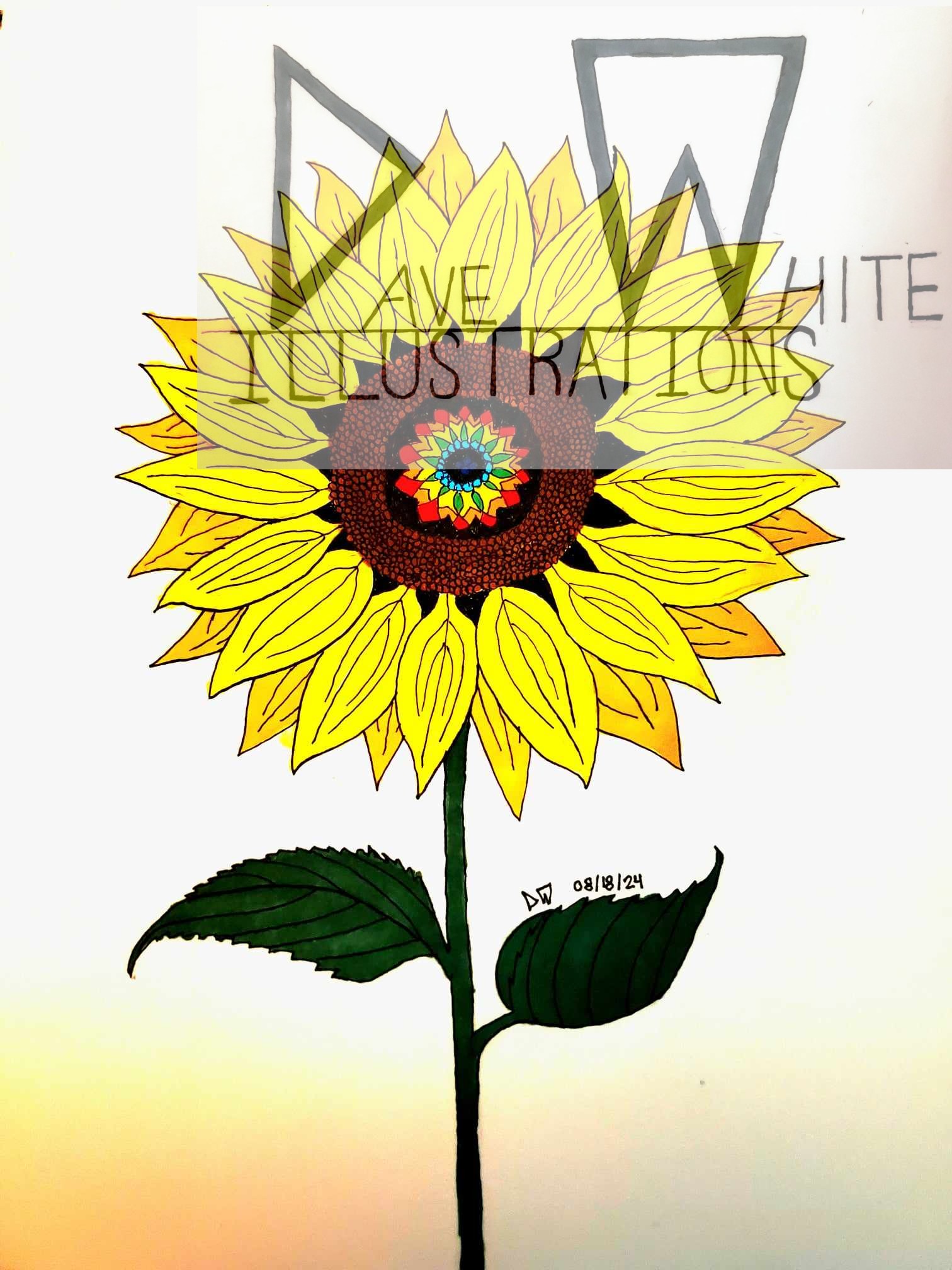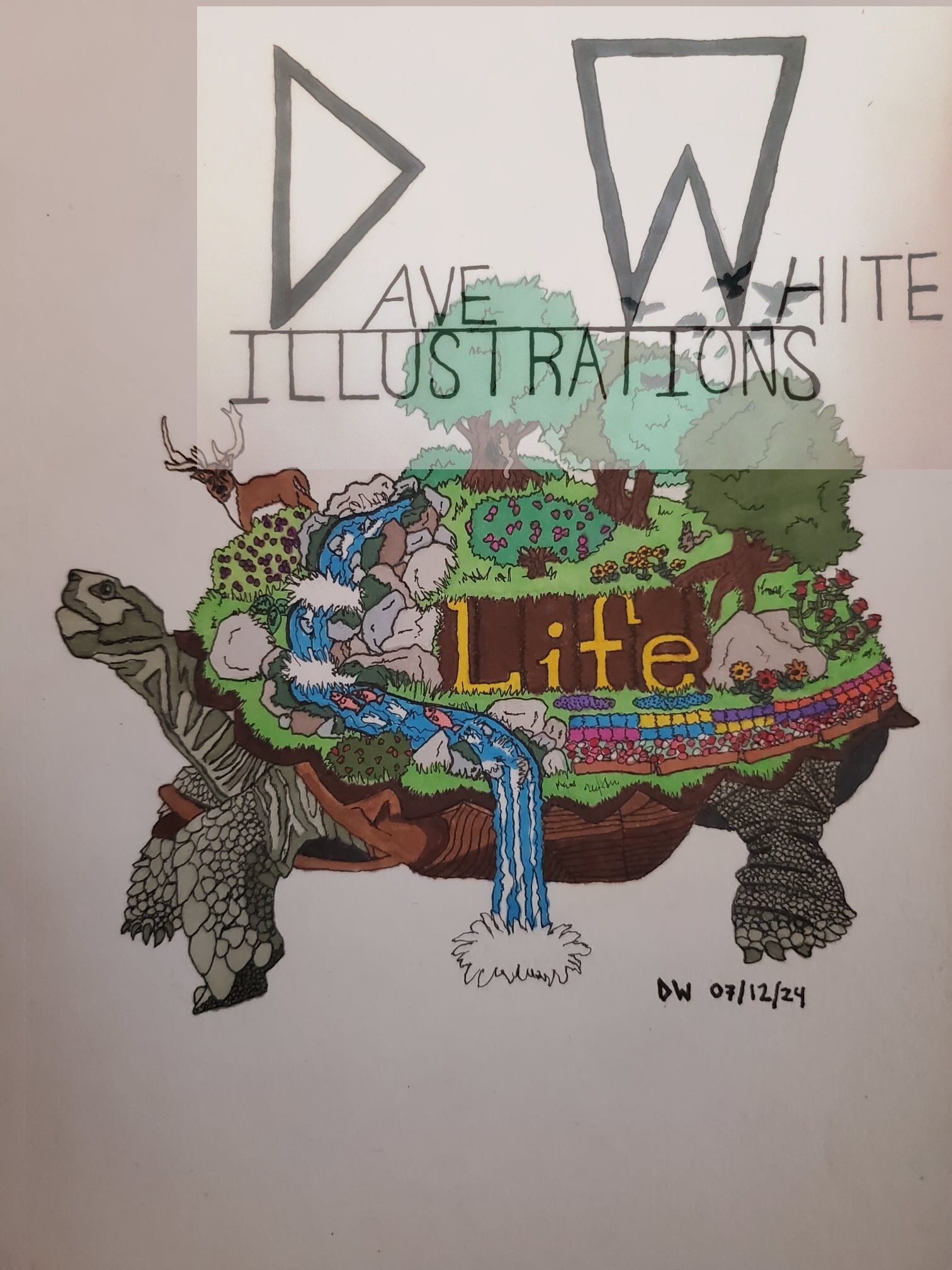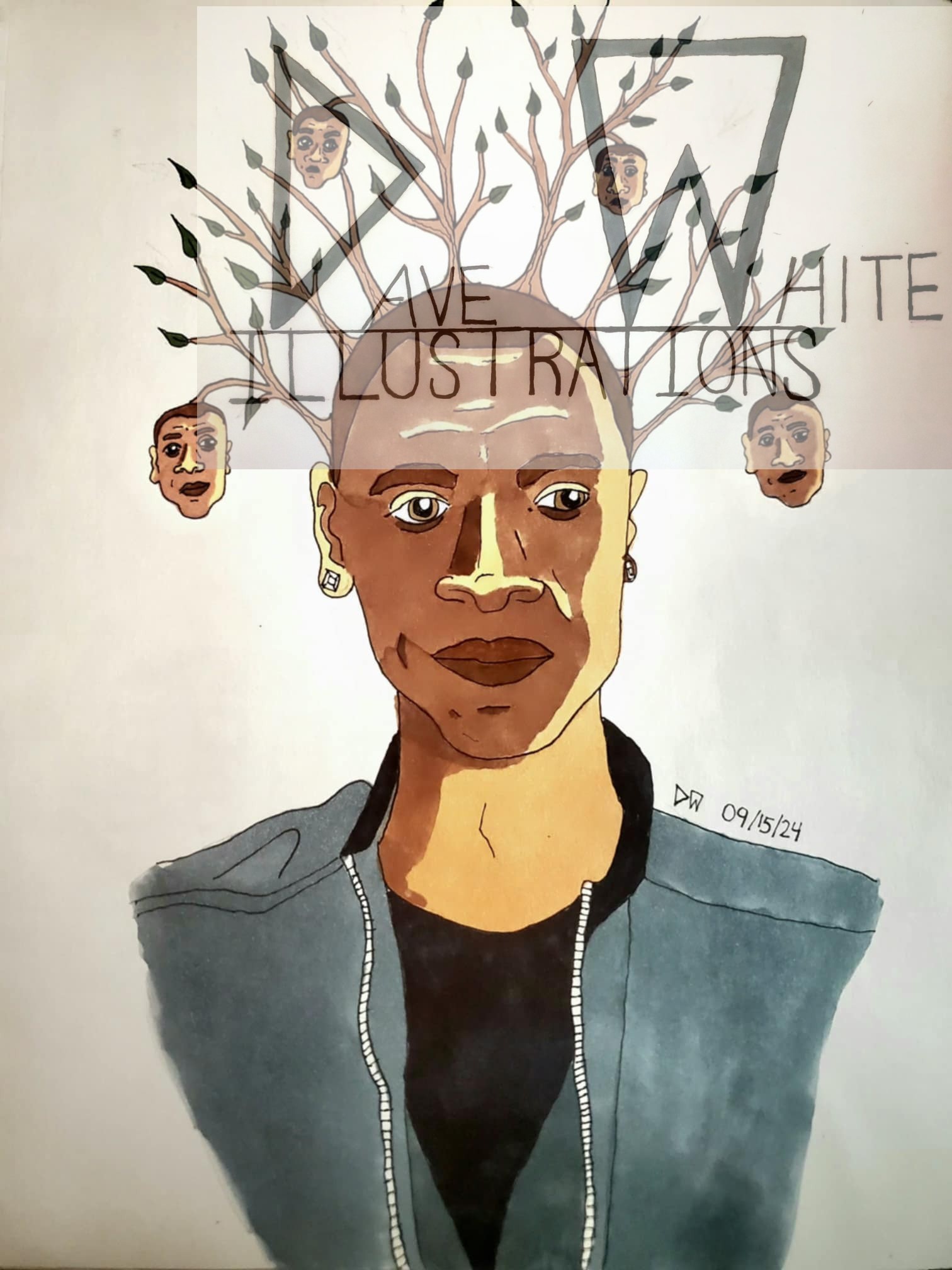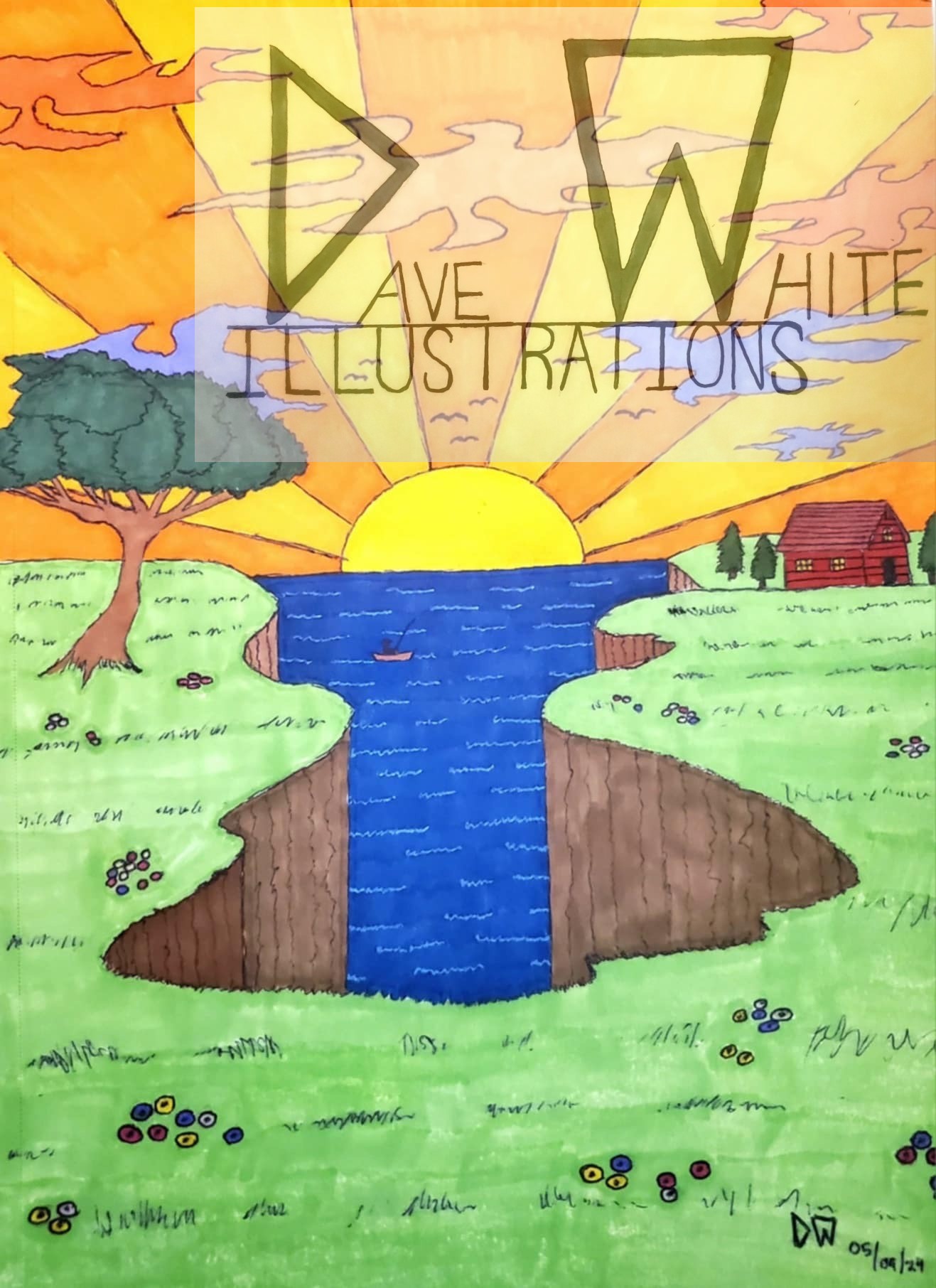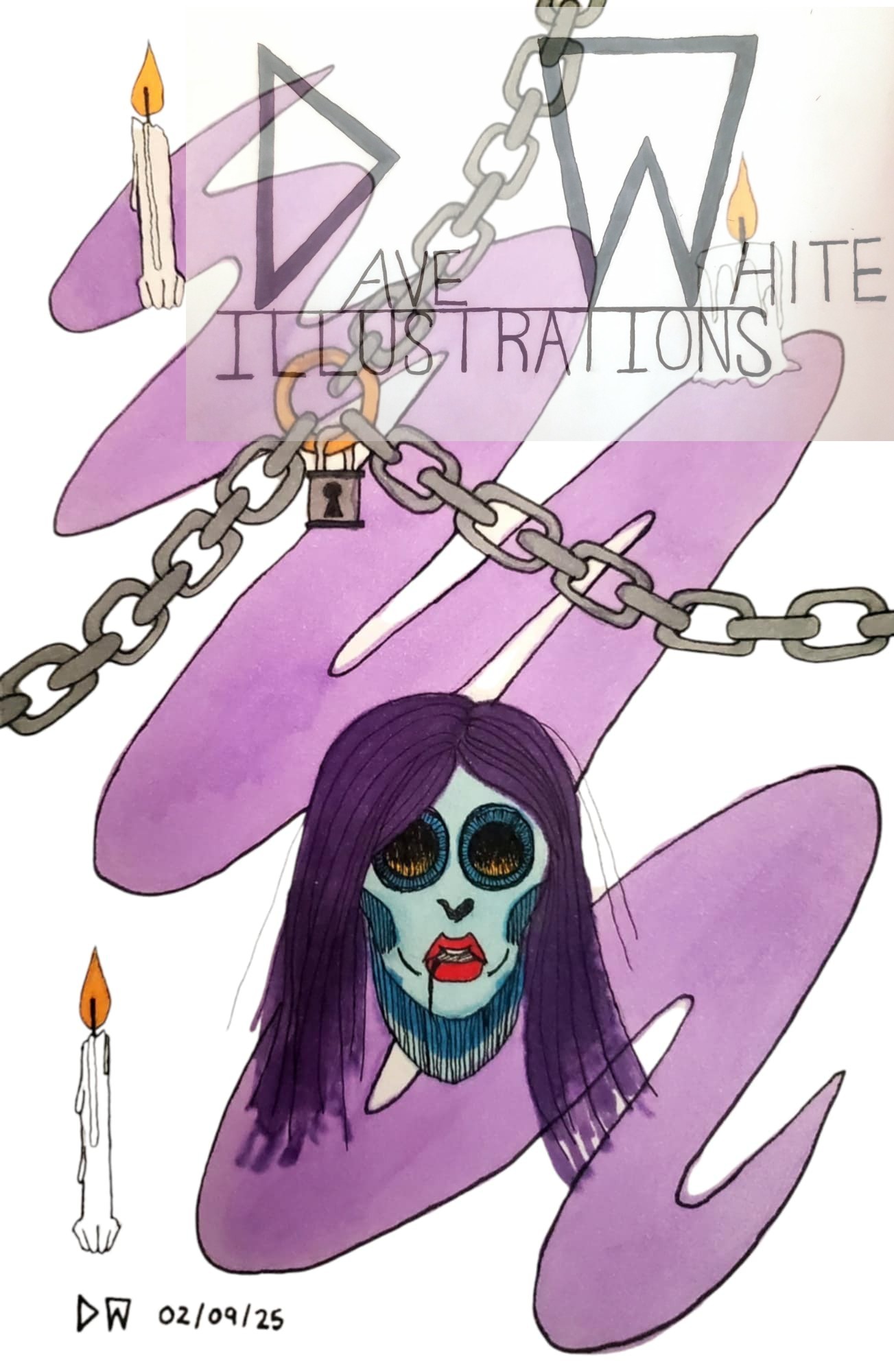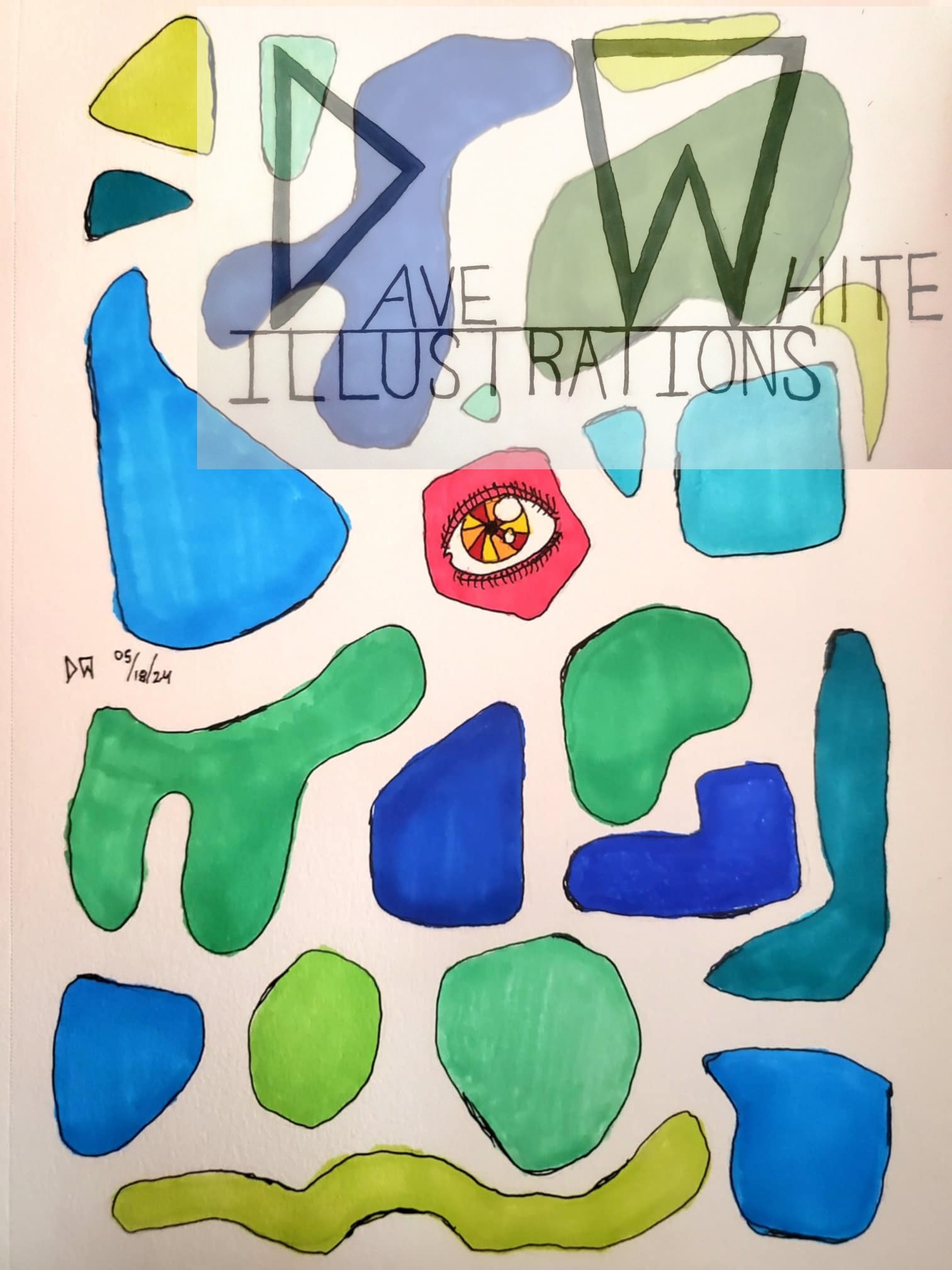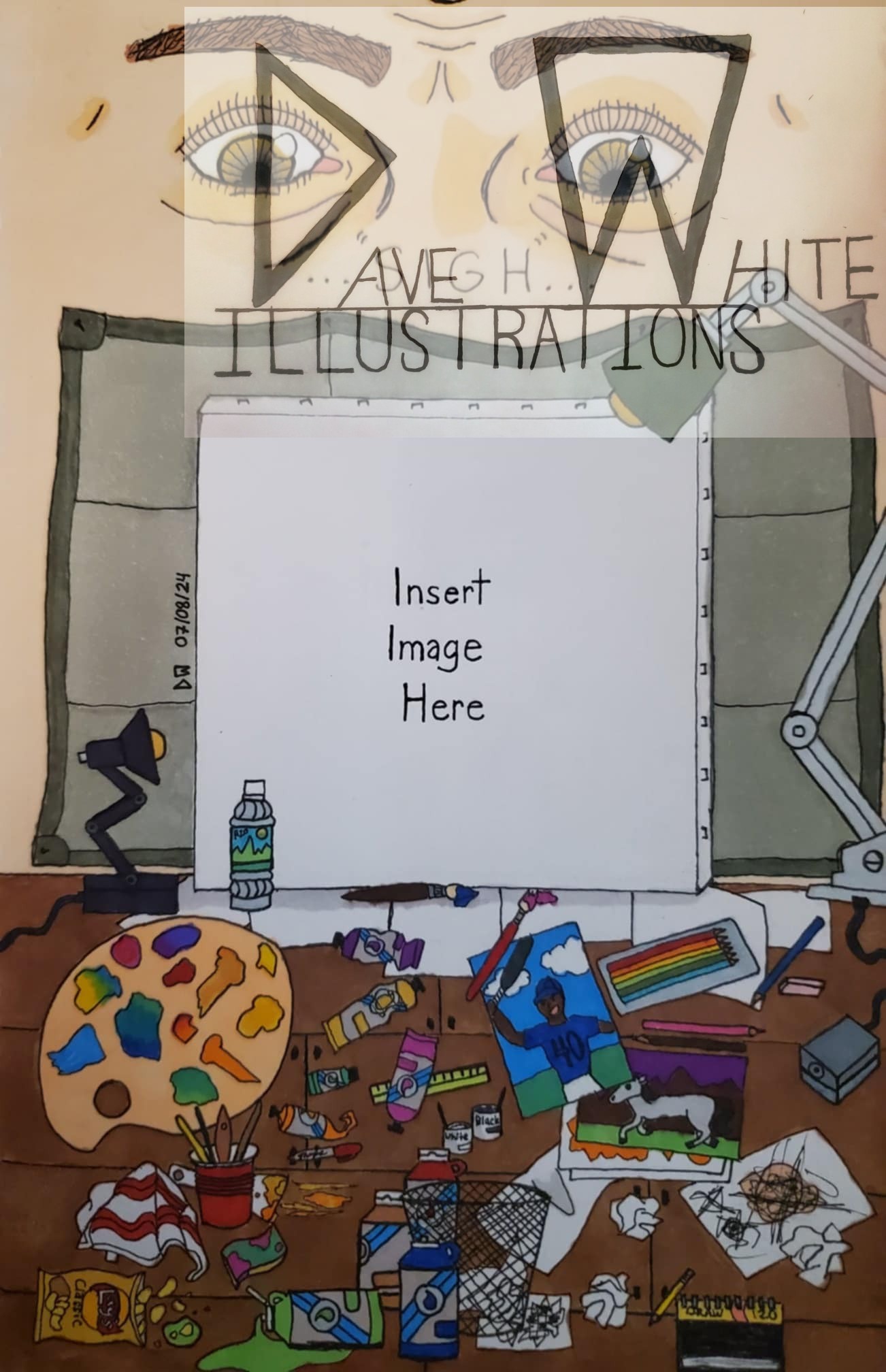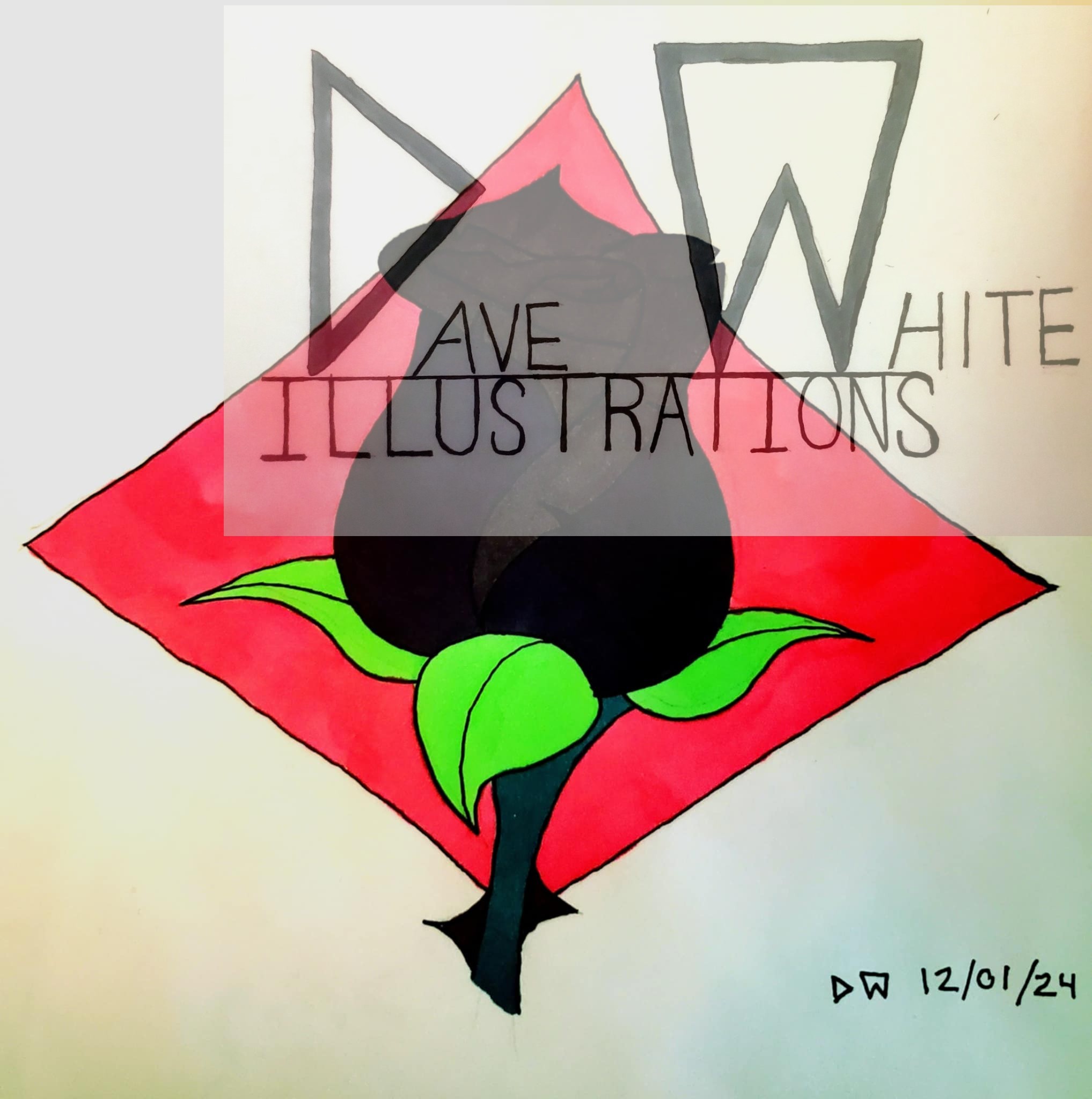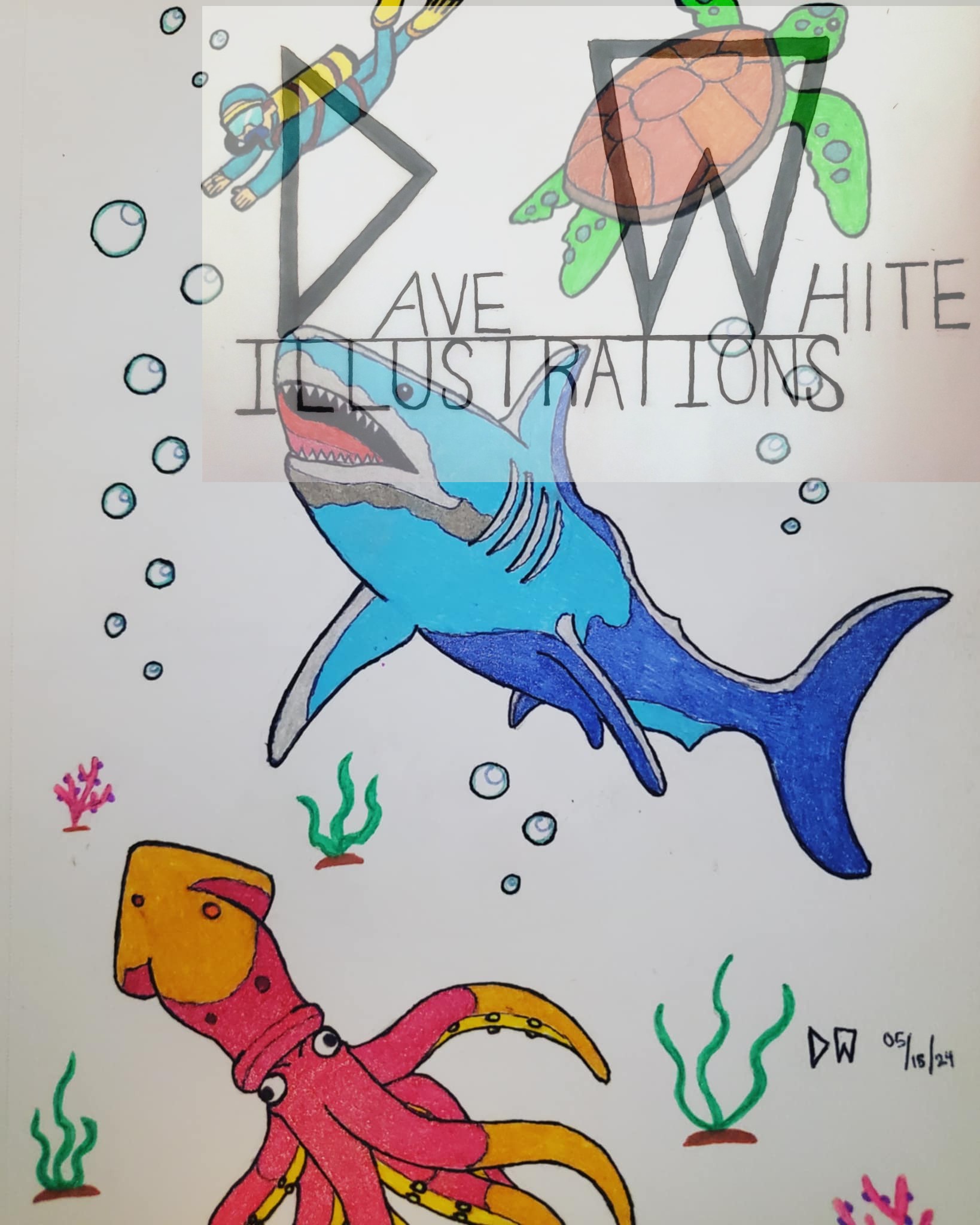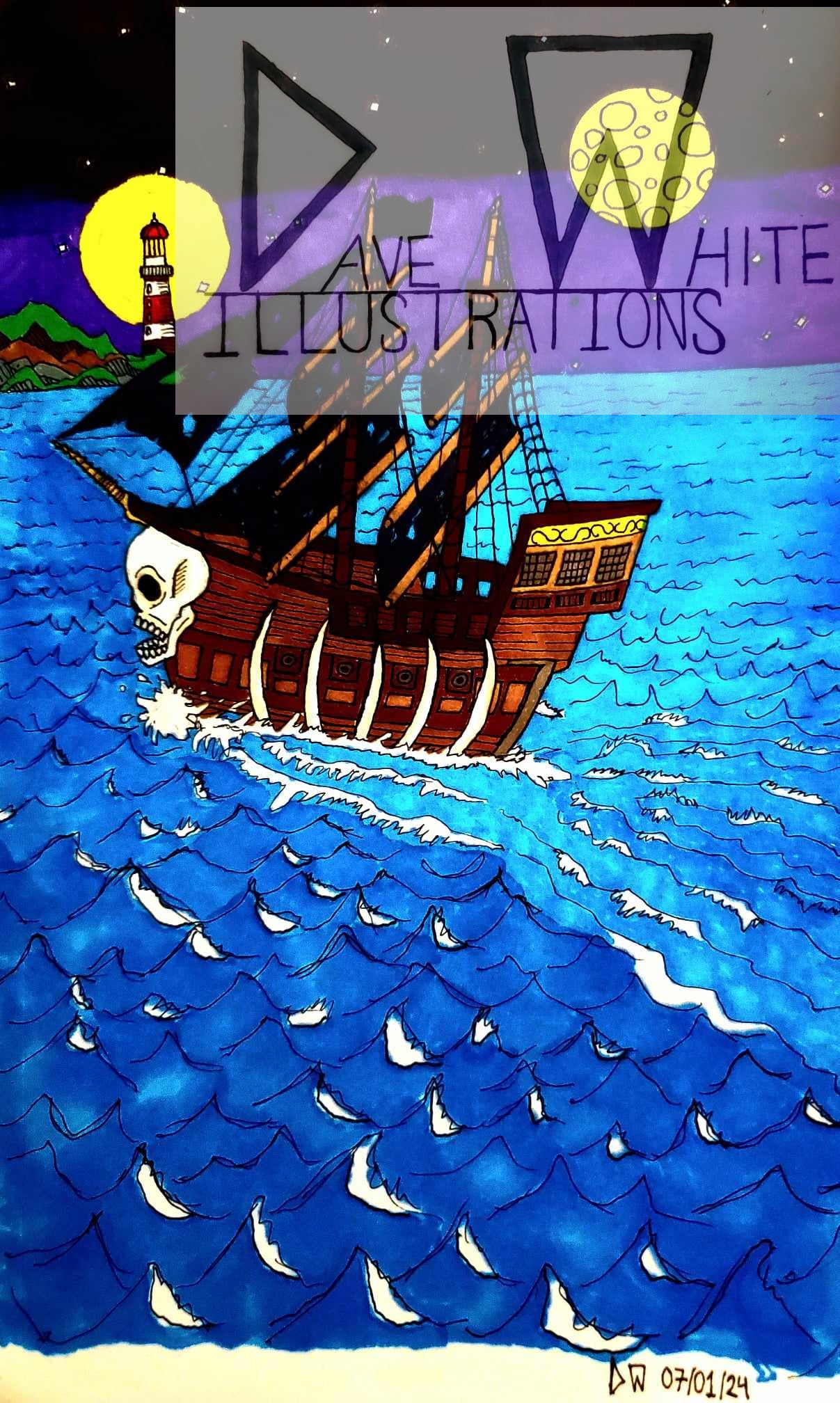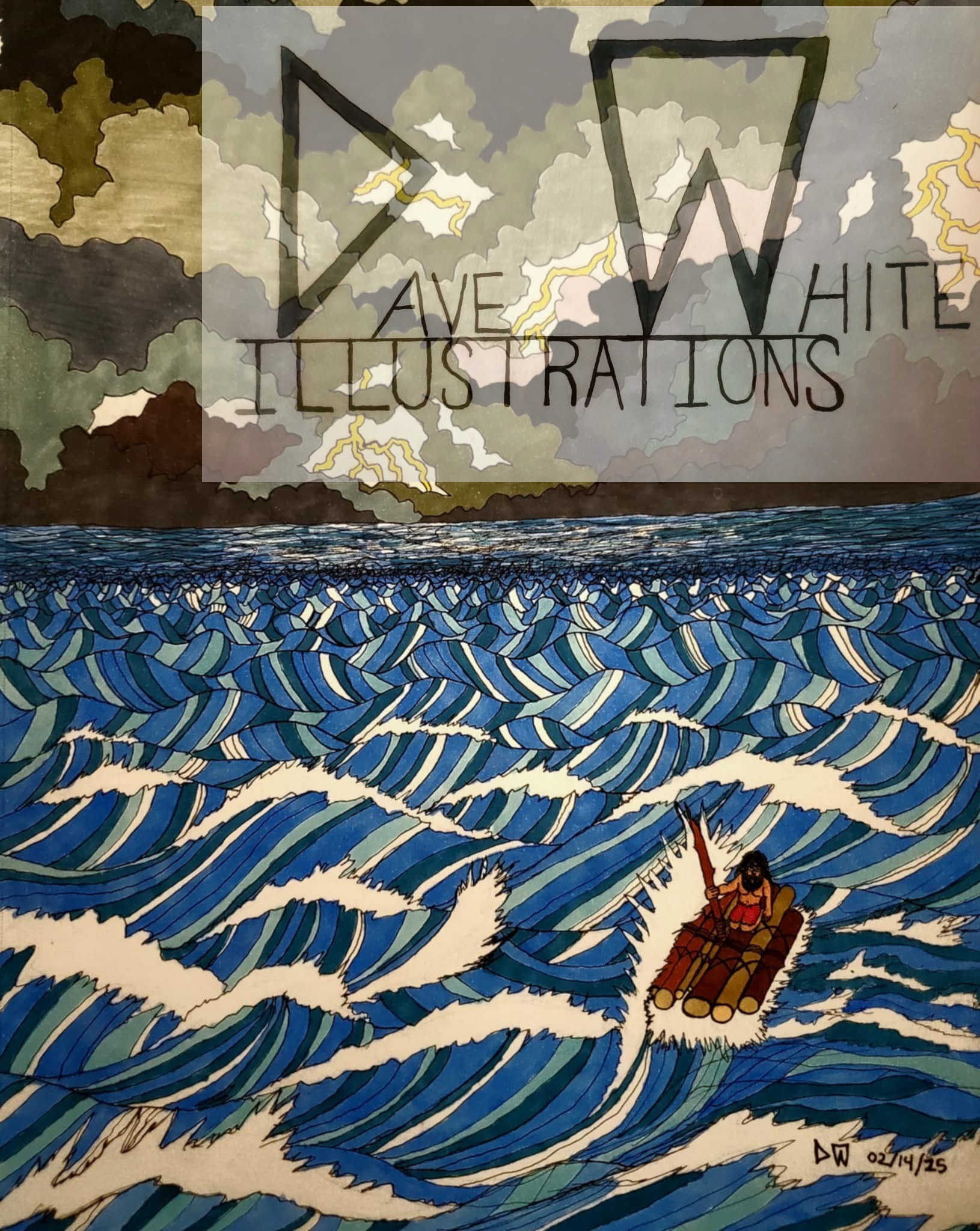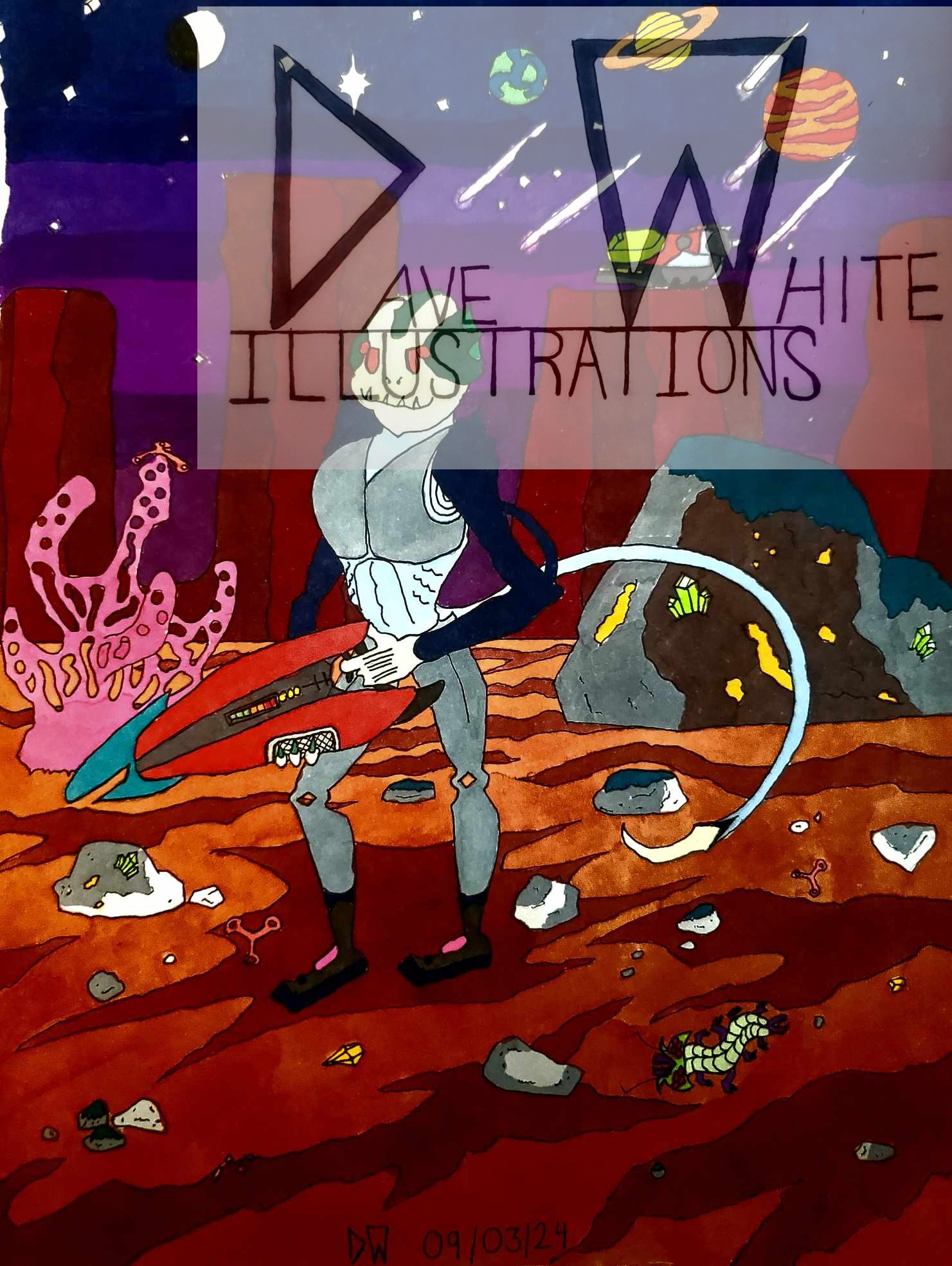-
Read more: The Sunflower That Bloomed in the Wrong Timeline
Psychedelic Sunflower and If Fate Were Kinder explore love that never entered the physical world, yet lived vividly in the mind and heart. Through radiant color and restrained verse, this Emotive Fusion Art pairing honors longing, missed timing, and the quiet ache of connections that bloomed in the wrong timeline.
-
Read more: Carrying the Weight of Living
Dave White’s Life Tortoise paired with Kiana Jimenez’s I Guess… reflects the quiet endurance of carrying grief while life continues around us.
-
Read more: Confronting the Shadow That Shapes Us
Dave White’s Self-Growth and Kiana Jimenez’s I Am Your Disease confront the brutal reality of healing. Where the poem gives voice to addiction and inner destruction, the illustration reveals growth as resistance—messy, painful, and defiant. Together, they show that becoming whole means facing the shadow, not pretending it was never there.
-
Read more: Mapping the Cluttered Heart
Dave White’s Busy Mind and Kiana Jimenez’s Fractured Pieces collide in a vivid study of mental fragmentation. Jagged shapes and empty spaces mirror a heart under pressure, painting the ache of expectations, roles, and unhealed wounds. Together they map the struggle to reclaim a fractured self and find freedom again.
-
Read more: The Price of Identity
Dave White’s Sell Yourself and Kiana Jimenez’s Self-Worth reveal a stark meditation on value, vulnerability, and commodification. Fragmented human parts paired with currency echo the poem’s haunting verses of selling oneself piece by piece. Together, they confront the devastating cost of undervaluing identity, leaving us questioning what our worth truly is.
-
Read more: Stillness Woven in Color and Verse
In Poetic Bipolar Mind’s Emotive Fusion Art, serenity becomes more than calm—it becomes eternal love. The illustration “Serenity” and the poem “Sunset Love” intertwine, merging tranquil landscapes with the tender embrace of timeless affection. Together, they transform silence into sanctuary and sunset into forever.
-
Read more: Bound by Time and Memory
Dave White’s Forgotten Soul and Kiana Jimenez’s poem intertwine in a meditation on eternal love, memory, and entrapment. Chains, locks, and flickering candles mirror verses of clocks and longing, creating a haunting narrative of two damned souls bound together beyond time’s reach, refusing to fade even as shadows close in.
-
Read more: Shards of the Heart
Dave White’s Pieces and Kiana Jimenez’s Blind Love merge into a meditation on heartbreak, resilience, and the desire to mend what has been broken. Vibrant fragments echo the poem’s shards of love, showing that even in pain, there remains the drive to rebuild, reassemble, and create new wholeness.
-
Read more: The Birth of Creation
Dave White’s Blank Canvas and Kiana Jimenez’s poem Blank Canvas explore emptiness not as loss, but as potential. What seems void is alive with possibility, waiting for creation to emerge.
-
Read more: Beauty in Solitude
Dave White’s Black Rose and Kiana Jimenez’s Black Rose intertwine as a reflection on individuality, solitude, and resilience. The illustration’s striking contrasts mirror the poem’s story of a feared yet beautiful rose, unwanted until it is finally embraced. Together, they remind us of the quiet power of recognition and care.
-
Read more: The Illusion of Freedom
Dave White’s Willow and Kiana Jimenez’s Binds reveal the paradox of freedom and captivity. The weeping willow’s branches drape like chains, echoing the poem’s lament of unseen binds. Yet both art and verse insist on resilience, reminding us that even in sorrow, a fragile thread of hope persists.
-
Read more: Vibrance Against the Weight of Numbness
Dave White’s Sea Creatures and Kiana Jimenez’s A World in Gray intertwine in a haunting contrast of vibrance and numbness. The lively ocean world collides with the poem’s grayscale despair, showing how depression can make even the most vibrant spaces feel isolating, adrift, and suffocating.
-
Read more: Adrift in Darkness and Doom
Dave White’s Ghost Ship and Kiana Jimenez’s Night Ritual converge in a chilling meditation on death, solitude, and the unknown. The spectral vessel adrift on a darkened sea echoes the poem’s storm of fear and doom, merging art and verse into a haunting reflection of mortality and the spaces beyond.
-
Read more: A World of Shadows and Silence
In Distant Planet and Darkness Descends, Dave White and Kiana Jimenez craft parallel visions of isolation and loss. The alien cliffs under a red sun mirror the poem’s suffocating night, both capturing the vast emptiness of worlds abandoned and the despair of hope extinguished, yet still lingering in shadow.
-
Read more: The Weight of Words & Alien Warrior: Emotive Fusion Art in Action
In Poetic Bipolar Mind’s Emotive Fusion Art, poetry and illustration don’t just coexist—they merge into a unified voice. In “The Weight of Words” and “Alien Warrior,” words become weapons and images become echoes, together forging an unbreakable portrait of writing as both surrender and survival.

